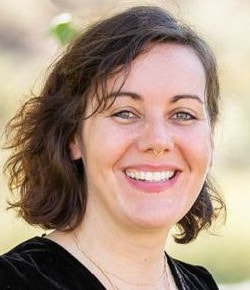(360) 357-7224
Olympia, WA
|
Today is the day after the election. And though there will not be a winner determined today for the office of President, early results show a popular vote that is very close to the percentages per party from 2016. So regardless of who the eventual winner might be, we can already see that the country is (still) split when offered an ideological choice between two candidates. But numbers aren’t the only measure of an election! In addition to the numbers there is also a feeling that has crept into the culture of political belonging which is profoundly charged and often quite polarizing. Though not always associated with each other, I believe that some of the dynamics of healthy interfaith understanding could be helpful in our wider political discourse at this time. One of the primary “agreements” that allows for healthy interfaith dialogue is the commitment to suspending the belief that one’s own path or practice is the only correct response to matters of ultimate concern. Becoming locked in the surety of our own tradition is what author Steven Greenebaum calls, “right belief”, which he says is, “the belief that you’re right and anyone who disagrees with you is wrong” (“Practical Interfaith: How to find our common humanity as we celebrate diversity”, Skylight Paths Publishing, 2014, Print, p.32). Greenebaum is proposing that interfaith understanding and cooperation do not require us to give up or give away our deepest convictions, hopes for the world, or inner truths (in fact, please DON’T give up or give away your deep orientations to meaning as these are some of the most vital energies we have!), rather, the bold claim of interfaith cooperation and understanding is that while we might maintain deep, inner convictions, we will remain open to the way in which our interfaith partners experience the world and remain open to how our dialogue might bring forth new insights or growth to what we, ourselves, have known. As the political rhetoric heightens in the coming days, keep an eye out for the way in which “right belief” is used as a tool to leverage allegiance and consider the high cost of this toward the hope of relating more deeply and openly with each other as people and citizens. And as we see this play out, let’s remember that there is a different way, though this way is no easy path. Interfaith understanding, as a model of relating to others, is hard work, it is good work, and it is work that requires a high level of trust in each other. O, for a world where this level of trust and openness is a foundation to the way in which we relate to each other between our traditions and our politics. In hope, Corey Passons, Program Manager for Interfaith Relations Your comment will be posted after it is approved.
Leave a Reply. |
Authors
Corey Passons, MDiv.
Interfaith Relations Program Manager Meg Martin, MSW, CPC
Executive Director Categories
Archives
August 2023
|




 RSS Feed
RSS Feed

11/4/2020
0 Comments